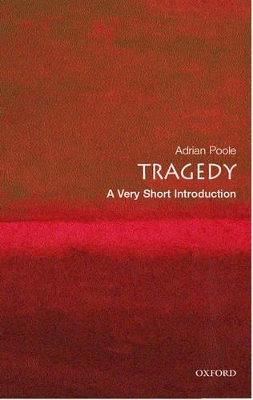Very Short Introductions
2 total works
How and why does tragedy matter? This book approaches the question through a close reading of Greek tragedies that is designed both for readers with Greek and those with none. It tackles the imaginative distance between the Greek plays and the modern reader by exploring them alongside three of Shakespeare's tragedies, "Macbeth", "Hamlet" and "King Lear", which put into bold relief, and allow us a better appreciation of, the compelling energies that are central to Greek tragedy.
What do we mean by 'tragedy' in present-day usage? When we turn on the news, does a report of the latest atrocity have any connection with the masterpieces of Sophocles, Shakespeare and Racine? What has tragedy been made to mean by dramatists, story-tellers, critics, philosophers, politicians and journalists over the last two and a half millennia? Why do we still read, re-write, and stage these old plays?
This book argues for the continuities between 'then' and 'now'. Addressing questions about belief, blame, mourning, revenge, pain, witnessing, timing and ending, Adrian Poole demonstrates the age-old significance of our attempts to make sense of terrible suffering.
ABOUT THE SERIES: The Very Short Introductions series from Oxford University Press contains hundreds of titles in almost every subject area. These pocket-sized books are the perfect way to get ahead in a new subject quickly. Our expert authors combine facts, analysis, perspective, new ideas, and enthusiasm to make interesting and challenging topics highly readable.
This book argues for the continuities between 'then' and 'now'. Addressing questions about belief, blame, mourning, revenge, pain, witnessing, timing and ending, Adrian Poole demonstrates the age-old significance of our attempts to make sense of terrible suffering.
ABOUT THE SERIES: The Very Short Introductions series from Oxford University Press contains hundreds of titles in almost every subject area. These pocket-sized books are the perfect way to get ahead in a new subject quickly. Our expert authors combine facts, analysis, perspective, new ideas, and enthusiasm to make interesting and challenging topics highly readable.

